
The six dwellings known as Aarupadai Veedu, or the “six war houses of the Lord,” are significant pilgrimage sites that draw thousands of devotees from around the globe. Despite the abundance of temples dedicated to Muruga, who is the son of Lord Shiva and Parvathi.
Aarupadai Veedu six specific temples hold great importance among followers in Tamil Nadu and are worthy of special recognition. Additionally, Muruga is revered under various names including Karthikeya, Subramanya, Kumaran, and others.
Tamil literature describes five different types of land: Kurinji (mountainous), Mullai (forested), Marutham (agricultural), Neithal (coastal), and Palai (desert). The Sangam literature designates various deities as the patrons of these regions, and according to these texts, Murugan is the deity of the Kurinji region.
Arupadai Veedu List with District
Arupadai Veedu, meaning “six battle camps,” refers to the six major temples in Tamil Nadu dedicated to Lord Murugan. These temples are considered to be among the most significant pilgrimage destinations for devotees of Lord Murugan.
| Temple | Original name | Location and District | Description |
|---|---|---|---|
| Arulmigu Subramaniya Swamy Temple, Thiruparankundram | தென்பரங்குன்றம் | Thiruparankundram, Madurai district | Located on the outskirts of Madurai on a hillock where Murugan is said to have married Indra’s adopted daughter, Deivanai. Nakkeerar is regarded to have worshipped Murugan in this shrine and is said to have worshipped Shiva here as Parangirinathar. This is the first of the Arupadaiveedu. |
| Arulmigu Subramaniya Swamy Temple, Tiruchendur | திருச்சீரலைவாய் | Tiruchendur, Thoothukudi district | Located on the seashore near Thoothukudi amongst the remains of Gandhamadana Parvatam or Santhanamalai (Sandal Mountain). The temple commemorates the place where Murugan won a decisive victory over the asura Surapadman by worshipping Shiva. |
| Arulmigu Dhandayuthapani Swamy Temple, Palani | திருவாவினன்குடி | Palani, Dindigul district | Located in Dindigul District, on the Palani hill bottom (Malai Adivaram) called ‘Thiruaavinankudi’, where the deity is known as ‘Kulanthai Velayuthaswami’ and is said to have been worshipped by the goddess Lakshmi (‘Thiru’ in Tamil), owner of cows (‘Aavinan’ in Tamil), living place (‘kudi’ in Tamil).
There is also a Murugan temple on the Palani hill top where ‘Dhandayuthapani’ is the main deity, in a meditating state, carrying a staff (‘danda’) as a weapon (‘ayutha’) in his hands (‘pani’). This is the place where Murugan is said to have resided after his feud with his family over a divine fruit. |
| Arulmigu Subramaniya Swamy Temple, Swamimalai | திருவேரகம் | Swamimalai Thanjavur district | Located at 5 km from Kumbakonam, the temple is built on an artificial hill. The temple commemorates the incident where Muruga is regarded to have explained the essence of the pranava mantra |
| Arulmigu Subramaniya Swamy Temple, Tiruttani | குன்றுதோறாடல் | Thiruttani, Thiruvallur district | The temple is located near Chennai and Murugan is said to have reclaimed his inner peace after waging a war with the asuras and married Valli here. |
| Arulmigu Solaimalai Murugan Temple, Pazhamudircholai | சோலைமலை | Pazhamudircholai, Madurai district | The temple is located on the outskirts of Madurai on a hillock with a holy stream nearby called “Nupura Gangai”. Murugan is seen here with both his consorts, Deivanai and Valli. |
List of Arupadai Veedu Six Abodes of Lord Murugan in Tamilnadu
1. Thiruparankundram :-
Muruga, worshipped as Subramaniyan, is situated on the outskirts of Madurai at a shrine. This cave temple is located on a hillock that was constructed in the 8th century by King Maravarman Sundara Pandiyan.
It is believed to be the location where Murugan married Deivayanai, the daughter of Lord Indra, as a gesture of appreciation for Murugan’s triumph over the demon king Surapadman.
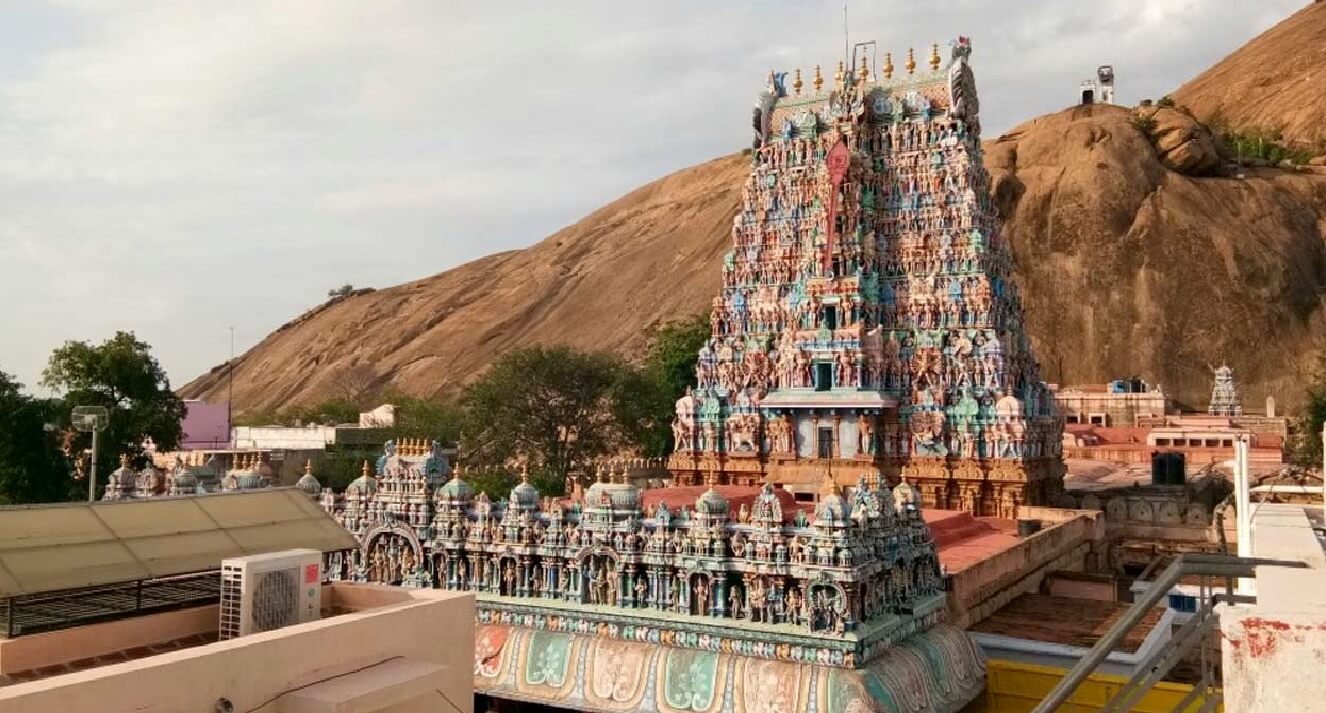
2.Thiruchendur :-
To commemorate Murugan’s triumph over the demon king Surapadman, the Thiruchendur shrine was erected. It is situated in the Tuticorin district and is the sole temple among the six temples dedicated to Muruga that is located by the seashore, while the other five are situated in hilly regions.
According to legend, after defeating Surapadman, Lord Muruga desired to express gratitude to his father Shiva, and therefore the divine architect Mayan was summoned to construct the shrine. Even today, one can observe Muruga in the position of offering prayers to his father at the temple.
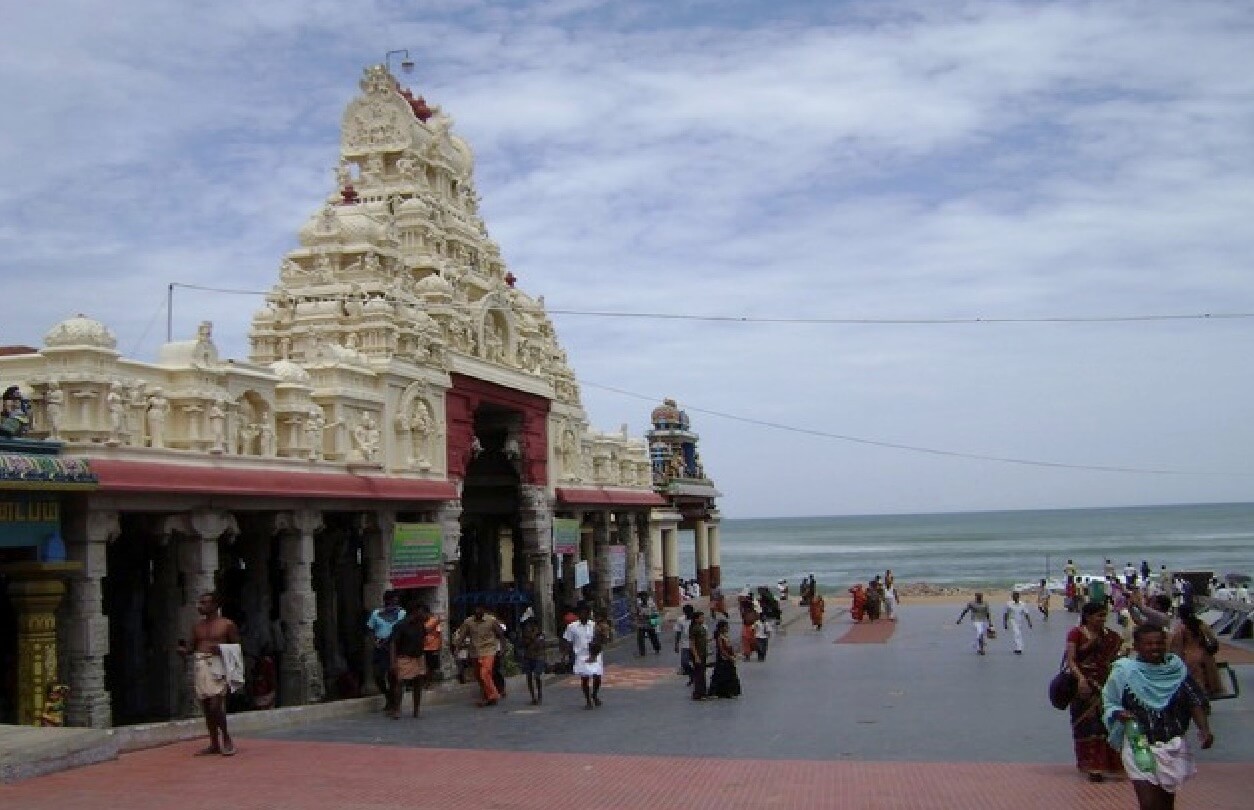
3. Palani :-
The temple of Murugan in Palani (Thiruaavinankudi) is one of the six abodes of Lord Murugan, known as Arupadai Veedu. According to the legend, Sage Narada once visited Lord Shiva and presented him with a fruit called the fruit of knowledge, which led Shiva to organize a competition between his two sons, Ganesha and Muruga.
The competition was to see who could travel around the world and return first to claim the fruit. Muruga, riding on his vahana, the peacock, accepted the challenge and embarked on his journey around the world.
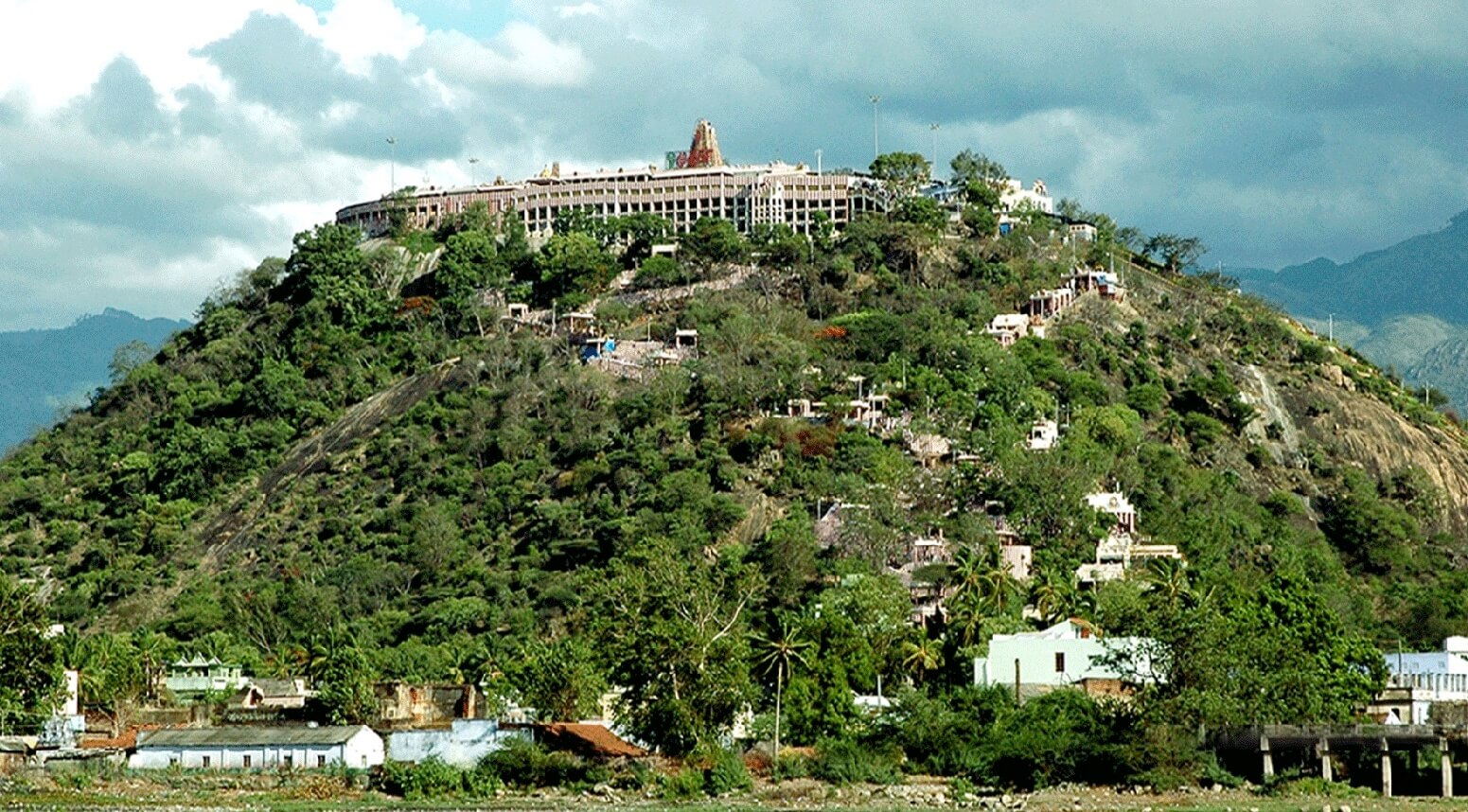
4. Swamimalai :-
Swamimalai, also known as Swaminatha Swamy Temple, is the fourth Arupadai Veedu and is situated near the temple town of Kumbakonam. The temple holds a significant place as it is believed to be where Muruga taught his father Shiva the meaning of the Pranava Mantra “OM”, making it a unique location where the son becomes the teacher, and the father becomes the student.
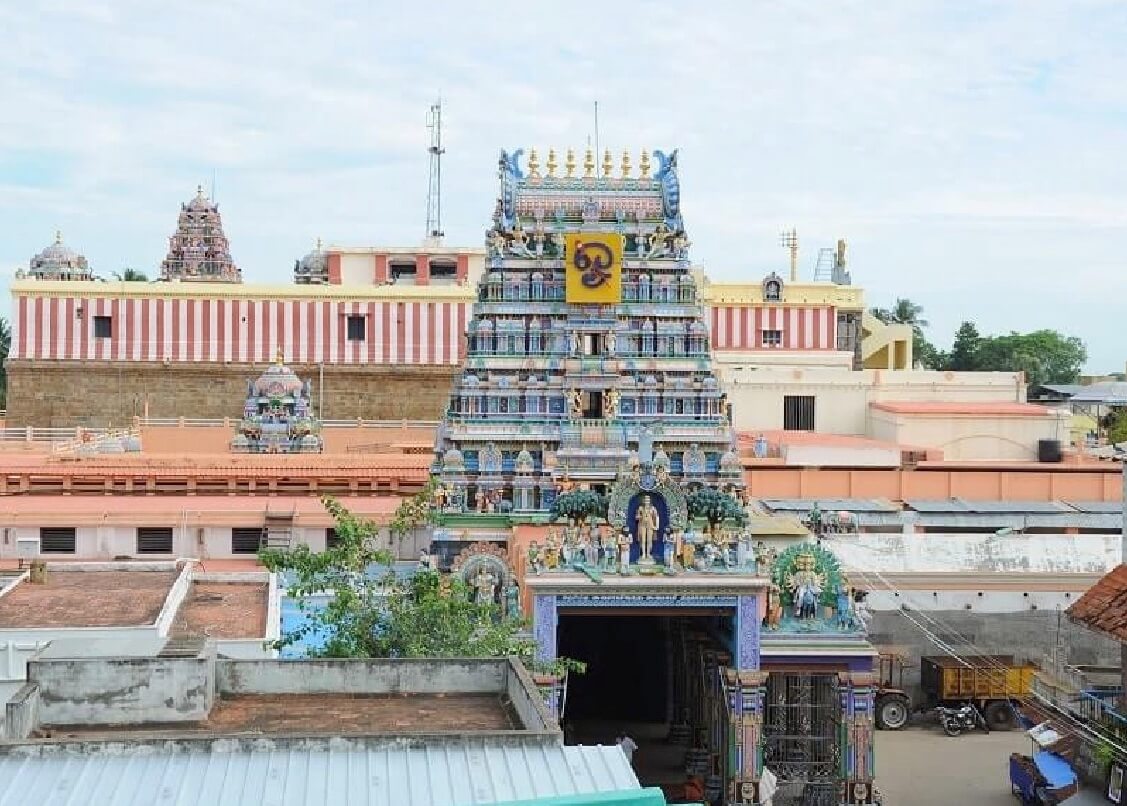
5. Tiruthani :-
Legend has it that Indra bestowed Muruga with his daughter Devayani as a bride and gifted him his elephant Airavata. Upon realizing that his wealth was dwindling after Airavata’s departure, Indra refused Muruga’s offer to return the elephant and instead requested that the elephant face his direction, resulting in the temple’s image of the elephant also facing east instead of the deity.
In another scripture, it is written that Muruga rested atop a hill to calm himself after slaying the demon king Surapadman at Thiruchendur. There, he met Valli and fell in love with her, leading to their marriage at the temple, where Lord Murugan and Sri Valli were wed.
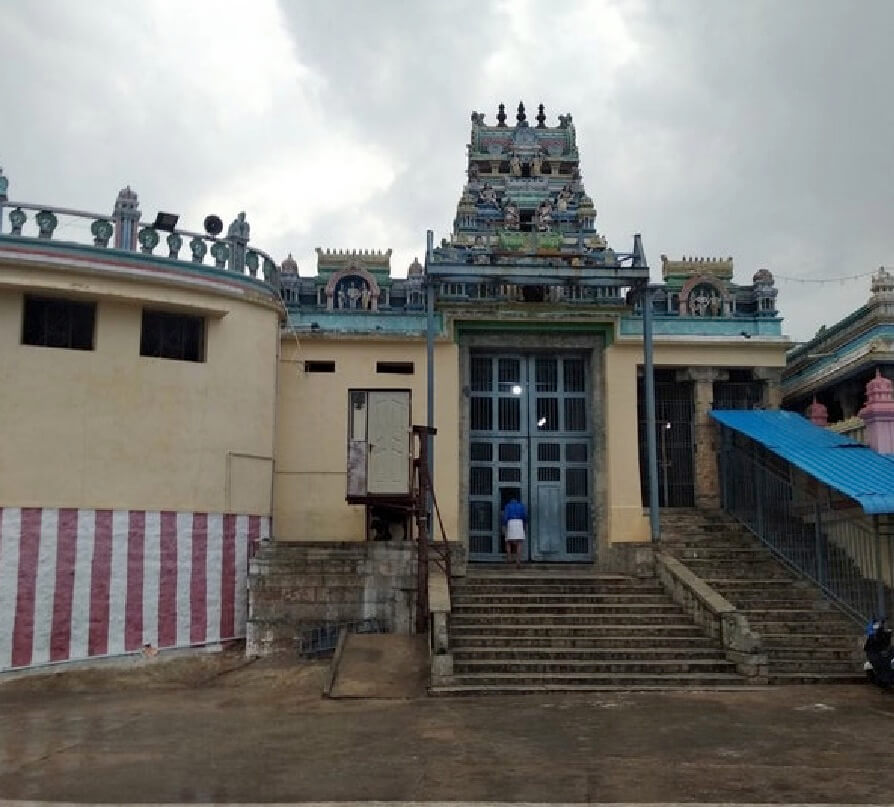
6. Pazhamudircholai :-
The Vel, the weapon of Lord Muruga, has been revered as the main deity in the shrine for ages. In this temple, Lord Murugan is worshipped as Kurinji Nilam Kizhavan, and he is accompanied by his consorts Valli and Devayani. This is the only temple among the six abodes where Murugan, along with his consorts, bestows blessings upon his devotees.
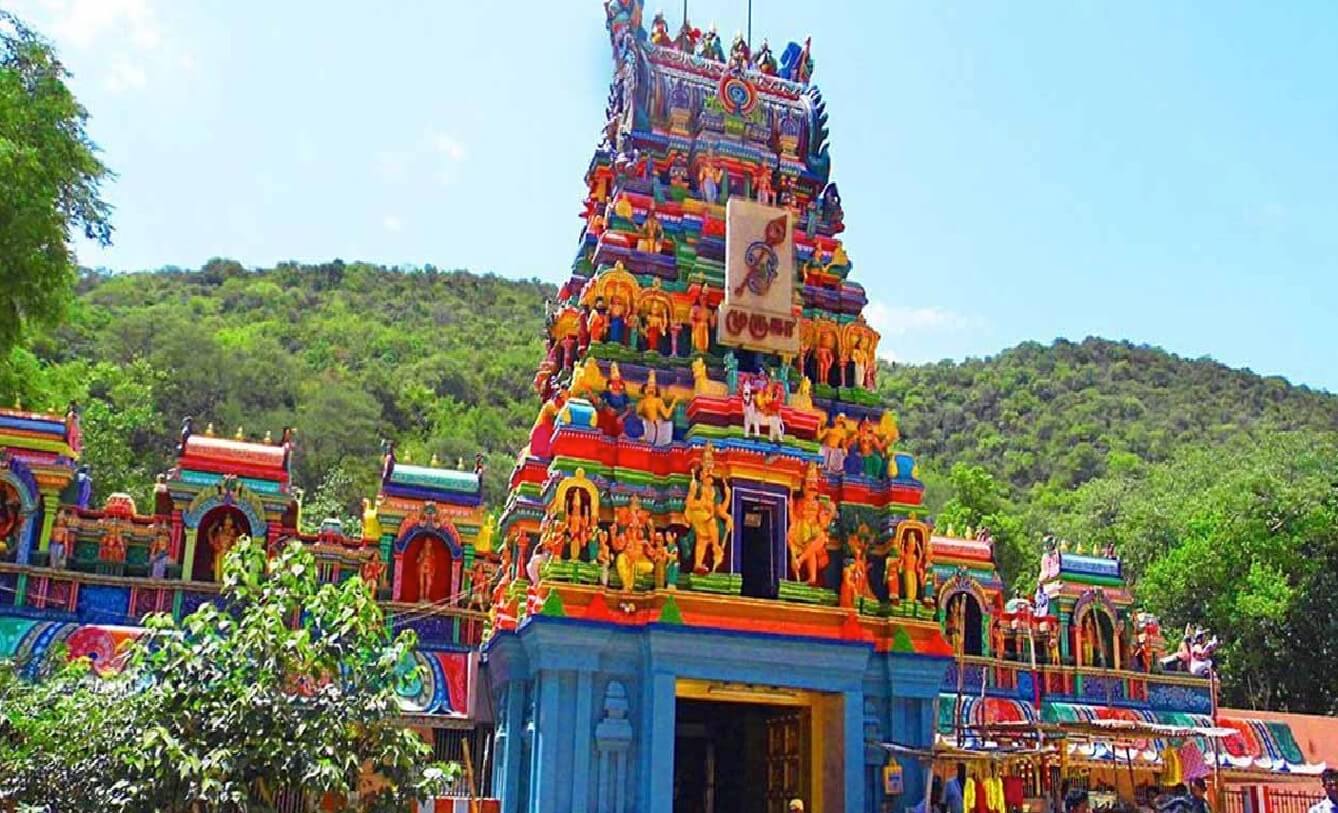
Read :
List of 12 Jyotirlingas in India With Name and Place – Loard Shiva Temples PDF